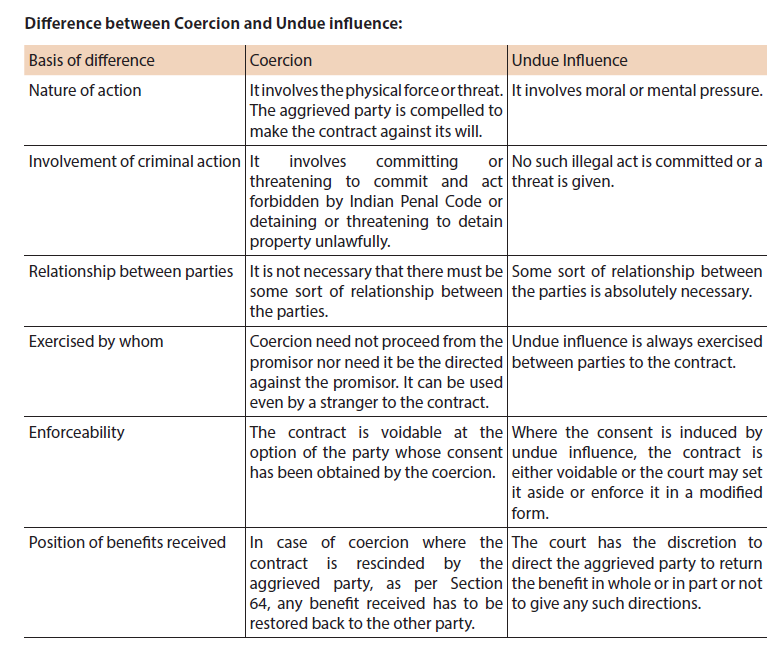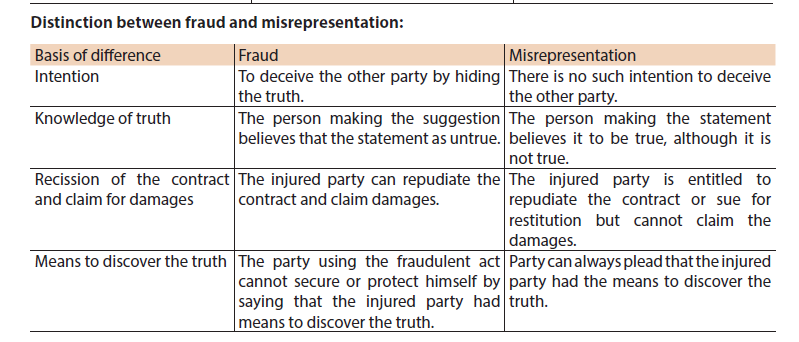Written By :- Nehraj Bisaria (Amity Law School)
INTRODUCTION
In simple terms, free consent means giving an individual consent to the execution of an act at one’s own will. But both the concept of free consent and consent have their own significance and broad significance in the context of Indian law. I would like to shed light on the legal sense of free consent in this article and what the underlying distinction between consent and free consent is.
Difference between the “Consent” and “Free Consent”.
A meeting of minds implies agreement. There is no meeting of minds when there is no consent.
The contract is void in the absence of consent.
The party does not acquire the right over the property and even such property is passed on to another party if there is no agreement of the party, so the other party does not have a right over it.
While,
If consent occurs, it is still under any control, so it is not free consent.
In the absence of free consent, the contract is invalid at the discretion of the involved party. The party has a stronger claim over the property if there is no free consent, unless the contract is terminated by the party affected by the contract.
What constitutes a “Free Consent”?Indian Contract Act, 1872 (ICA)
The Indian Contract Act,1872 deals primarily with contractual provisions and is a parent law from which many other civil laws have evolved over time, such as Family Law, Transfer of Property Act, etc. The key provisions dealing with Indian Contract Law are various forms of contracts, terms of a legal contract, and all other contract-related provisions. Free consent and what constitutes free consent and what factors affect the agreement are also specified by the Indian contract.
Section 13 of the ICA describes consent as “when two parties have concluded the contract, the same thing should be agreed on in the same way,” a meeting of minds between the two parties should take place. If there is no ad idem agreement, meeting of minds, on the contract’s material terms, then any communication will be invalid.
- In addition to Section 13, Section 14 describes free consent as consent not arising from any of the following:-
- Coercion(Section15)
- Undue Influence (Section 16)
- Fraud (Section 17)
- Misrepresentation (Section 18)
- Mistake (Section 20,21 and 22)
If the free consent of any party is obtained from either of the above-mentioned parties, the contract signed between the two parties shall, at the choice of the aggrieved party, be void.
Coercion (Section 15)
Coercion is defined in Section 15 of the Indian Contract Act 1972 as any act involving a threat, unlawful detention or a threat of detention of the other party’s property with a view to obtaining his consent and an act prohibited by the Indian Penal Code.
Undue Influence (Section 16)
Section 16 of the ICA,1872 notes that when the party is in a position to control the will of another party and render an unfair advantage over the other party, the consent obtained from the undue power.
Fraud (Section 17)
Section 17 describes fraud as an effort by the other party, after the party has entered into the contract, to hide the actual truth or to provide such information that is not true or to make such promises without any intention of fulfilling it, and an act prohibited by law and another alternative to deceive the party.
Misrepresentation
Section18 states that it leads to misrepresentation when the party enters into the contract and another party performs some intention to cheat infringes the obligation or induced the error without having intention.
Mistake
In Section 20 of the Indian Contract Act, 1872, two mistakes are listed.
- Mistake of Reality involves the
- Unilateral Mistake
- Bilateral Mistake – In Case of Bilateral Mistake the agreement entered is void.
- The mistake of law covers
- Mistake of Indian Law-The agreement entered into is invalid in the event of a Mistake of Indian Law.
- Mistake of Foreign Law
The word free consent is not specified anywhere in the Indian Penal Code, but there is Section 90 of the Code that says that what does not amount to free consent is not mentioned.
According to Section 90, ‘A consent is not such as any section of this Code intends, if the consent is given by a person who is afraid of injury or misunderstanding of fact, and if the person performing the act knows or has reason to assume that the consent was given as a result of such fear or misunderstanding;
The crazy person’s permission. The person who is unable to comprehend the essence and outcome of the act he consents to Child’s agreement. Unless the opposite is evident from Consent of the child. Except “if the consent is given by a person who is under the age of twelve years” is the opposite.
This implies that any such consent that is obtained is:
- Under the danger or fear of harm, or under the threat of fear, the act that triggers it is done.
- By a crazy person, or by an insane person
- Under the Code, the consent of a child under 12 years of age shall not constitute consent.
- Fear of injury or misunderstanding of facts.
Difference between Coercion & Undue Influence

Difference between Fraud & Misrepresentation

CASE LAWS
For the delivery of cotton, the parties came into touch. The conditions were such that the cotton would be shipped by a ship called “Peerless” from Bombay to the defendant in the port of Liverpool. Two ships named Peerless were present, one leaving in October and one in December. The plaintiff shipped the cotton to the December vessel, but the defendant did not pay, arguing that they assumed the cotton would be delivered to the October vessel.
The plaintiff successfully delivered the cotton to the December vessel, but the defendant refused to pay, alleging that the cotton would be delivered to the October vessel. The court rejected the claimant’s argument for breach of contract by arguing that there was no agreement ad idem on the material length of the contract, so there is no binding contract. However, not every contract where parties do not agree in the same manner and the same subject shall be non- binding.
The spiritual counselor, Mannu Singh v Umadat Pande, prompted the complainant to pass his entire property to him in the next life with the hope of securing benefits. It was considered that such a contract was compromised by unfair control.
RC Thakkar v Gujarat Hsg Board, the Court held that the cost estimates given by the authorities in the tender notices were considered to be fraud because, in fact, the authorities did not quantify the estimated cost of labor, and it was a dishonest act for such material representation to be known to be false.
CONCLUSION
In certain cases, the Indian statues are ambiguous about the concept of free consent. While in civil law it offers a simple definition of what amounts to free consent, the uncertainty of free consent in criminal laws could be eliminated only by the apex court’s interpretation of the judicial decisions.
